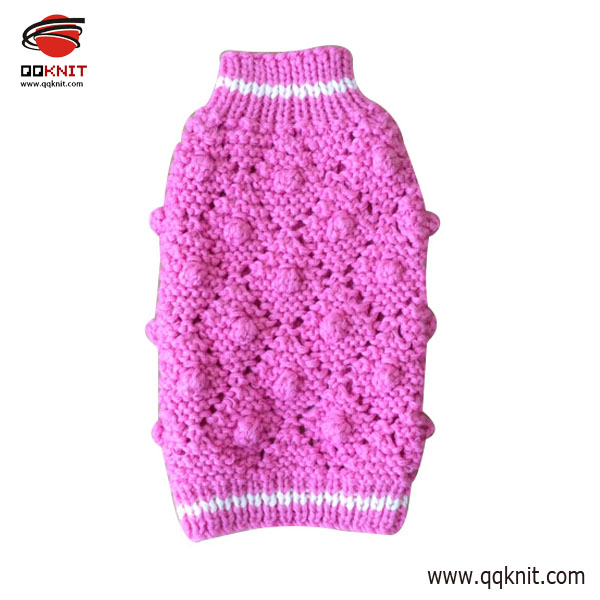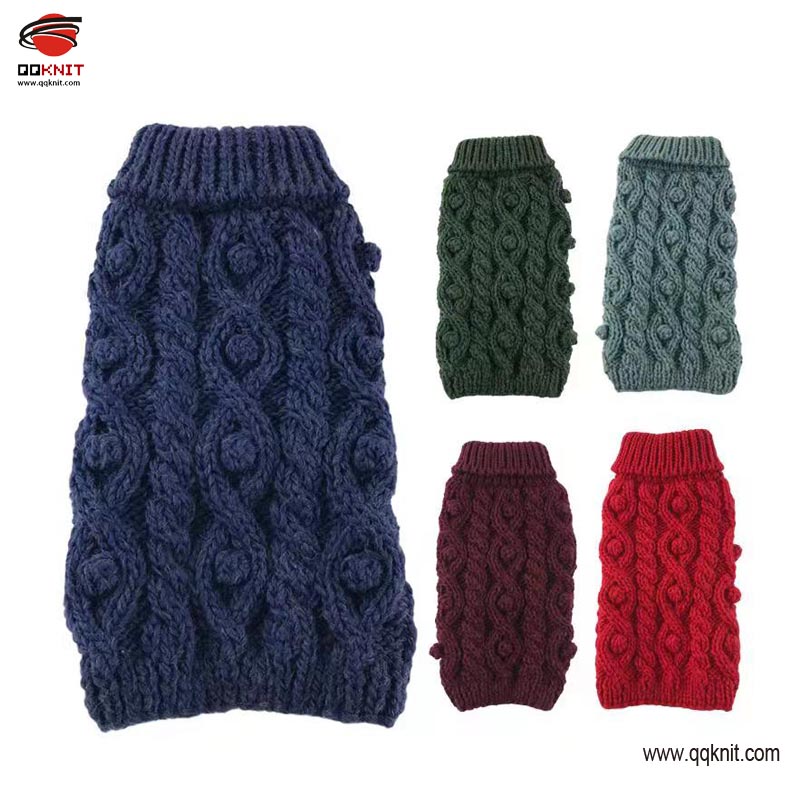By organizing the study of the book "Cognitive Nature", the handmade pet sweater knitters of QQKNIT not only improved their communication but also gained valuable insights into more effective learning and memory techniques through the lens of cognitive science. These insights have had a profound impact on their knitting skills and personal development. Here’s how they have interpreted the key points from the book and applied them to their hand knitting practice:
1. **Hand Knitting as a Conditioned Reflex**:
The repetitive nature of hand knitting allows the handmade dog sweater knitters to establish and strengthen conditioned reflexes. Each finger movement and thread manipulation becomes second nature through constant practice, enabling them to master complex patterns and designs more efficiently.
2. **Importance of Retrieval in Learning**:
The handmade pet jumper knitters recognize that actively engaging with new techniques—by practicing them rather than merely observing—solidifies their learning. Regularly retrieving and applying this knowledge helps to embed it more deeply in their memory, leading to better retention and skill mastery.
3. **Challenges Enhance Learning**:
The handmade dog jumper knitters understand that facing difficulties in hand knitting, such as tackling intricate designs or overcoming mistakes, forces them to think critically and problem-solve. This deep engagement with the material makes learning more effective than when it’s too easy or straightforward.
4. **Strengthening Psychological Representation**:
By visualizing each step of the hand knitting process and the final product, the hand knit pet sweater knitters enhance their ability to execute their craft with confidence. This mental rehearsal helps them to foresee potential challenges and navigate the hand knitting process more smoothly.
5. **Knot Memory**:
The concept of knot memory emphasizes the importance of connecting different pieces of knowledge through intermittent and varied practice. For the hand knit dog sweater knitters, this means that alternating between different techniques and patterns strengthens their overall skill set and aids in long-term retention.
6. **Interval Practice and Diverse Exercises**:
Instead of focusing solely on one technique or pattern, the hand knit pet jumper knitters incorporate interval practice by switching between different hand knitting tasks. This approach prevents burnout, keeps the learning process dynamic, and facilitates the application of knowledge across different contexts.
7. **Benign Interference to Enhance Learning**:
Encountering similar but distinct techniques or patterns requires the hand knit dog jumper knitters to pay close attention to detail. This process of distinguishing between subtle differences improves their ability to remember and apply what they’ve learned more effectively.
8. **Creating a Personal Psychological Model**:
Each hand knit sweater knitters develops a unique psychological model based on their experiences and preferences. This personalized approach to learning and problem-solving becomes a valuable tool for guiding their future hand knitting projects and creative endeavors.
9. **Commitment to Lifelong Learning**:
The handmade sweater knitters embrace the philosophy of lifelong learning, recognizing that the art of hand knitting evolves with new techniques, materials, and designs. By maintaining curiosity and a willingness to learn, they continue to grow both as artisans and individuals, keeping their craft fresh and innovative.
These interpretations of "Cognitive Nature" not only enhance the handmade knitters' technical abilities but also inspire them to approach their craft with a deeper understanding and greater enthusiasm, ensuring that their knit skills and creativity continue to flourish. From QQKNIT College (Best hand knit/ handmade products)
The following Products may interest you!
Post time: Aug-28-2024



